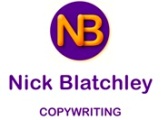If you copy from one source, so the old saying goes, that’s plagiarism. If you copy from two sources, it’s research.
I don’t copy from anywhere (that would be unethical and unprofessional, not to mention that I wouldn’t get paid) but I do have to research a lot of topics I know nothing about. And I do mean nothing. On a couple of occasions, I’ve had to look up to discover what the title I’ve been given meant.
As the saying suggests, though, it’s usually not a good idea just to research from one source, however convenient that source may be. It can be very tempting, for instance, simply to look the subject up on Wikipedia and paraphrase what that says – and it’s clear, when you search through other sites about the topic, that some have done just that. Or even dispensed with the paraphrasing part.
Wikipedia can be quite useful, in fact, but mainly for getting an overview of a subject, which can help in pinpointing what else to look up. It may also provide links to sites that discuss it in more depth. Any encyclopaedia, whether it’s Wikipedia or the Encyclopaedia Britannica, isn’t going to give more than a framework, but if, for instance, you’re trying to write about the recent economic history of Andorra (no, that’s not one I’ve done), the Wikipedia article might at least tell you who the significant figures are.
There are two ways of finding more detailed information: a big library or Google (or other search engines). Assuming, though, that as usual you need the research to be done by yesterday, that pretty much leaves Google.
Depending on the nature of the subject, in fact, websites are often more up to date than even the latest books, especially if you’re writing about business, politics or technology. As always with the internet, it’s important to sift out the reliable stuff from the people who think they’re the ultimate authority on everything, and this is one reason why it’s vital to read a lot of sites. I typically check out at least the whole first page of my particular Google search and often more (as well as following links on those sites), comparing different claims and different angles of opinion to create a synthesis.
It’s important to keep a note of all the relevant links, if you’re going to come back to the research later. You may well be able to find the same sites again, but there’s no guarantee. By all means make notes of the information you want to use, but it can still be useful to come and check it in context before giving your own take on it.
It is all right to copy directly from another source – but only if you’re actually quoting. By all means quote, especially if the words come from an authoritative source (the Andorran prime minister, for instance), but make sure the passage is clearly marked as a quote and give the source, either by citing author and title, or by including a link to the relevant webpage. Then it doesn’t count as plagiarism.
Whatever you publish, whether in print or online, is representing you to the public. It might reflect on your business, or (as in my case) it might reflect on a marketable skill, but either way a poorly researched or plagiarised piece can present a negative image to the world. And that’s never good.
